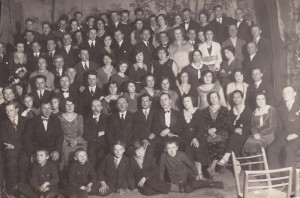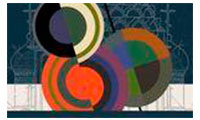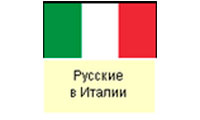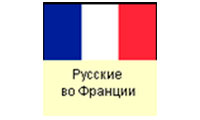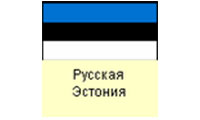The Old Believers of Riga
Arnold Podmazov
Riga Old Believers after the Restoration of Latvia’s Independence
In many respects, the 1990s became the turning point both for Latvia and also for Riga Old Believers. On one hand, after the reestablishment of the independence of Latvia, Old Believers’ communities regained legal rights to their property that was previously in the hands of the state. It became possible for the believers to openly profess their religious views and to involve young people in the life of the Old Believers’ community. On the other hand, a lack of experienced spiritual fathers and insufficient experience in legal matters created some obstacles in the way to the revival of social work for the Old Believers’ communities. It has to be noted that it was the Riga Grebenshchikov Community that in 1990s took upon itself the duties of spiritual and material assistance to other Old Believers’ communities.
In the second half of the 1990s the Council of the Grebenshchikov Community concentrated on the reconstruction of the church architectural ensemble and of its infrastructure lost during the Soviet era. The buildings were thoroughly renovated; the almshouse was repaired and made suitable for living. About ten people found shelter at the almshouse. The workshop for painting and restoring icons and the printing-shop were opened. Also workshops for sewing, candle making and copper casting were opened, the latter being the only one in the Baltic States.
The community was engaged in massive reconstruction works. In 2000 a project for renovation and improvement of the church ensemble territory (architect Ludmila Kleshnina) was drafted. The first stage of the project has been carried out since, but work is still going on. The works with regards to the renovation and conservation of the iconostasis in the refectory church of the Grebenshchikov Community has also been undertaken.
The Community started to pay a special attention to the religious education of both the younger generation and of the adults. The Sunday school for children and for adults was reopened. Using the 1930s curriculum for the course in the “Divine Law”, a new modern curriculum was drawn up for the Old Believer students who study in comprehensive schools. The Ministry of Education of the Republic of Latvia approved the curriculum in 1998.
The Grebenshchikov Theological School continued its work and thereby has helped to partly compensate for the lack of clerics in small Old Believers’ communities in Latvia and abroad. The Grebenshchikov Community, supported by the Central Council of the Old Orthodox Church of Latvia, once again started extensive publishing work, at first trying to satisfy the need for liturgical and educational books.
Thus, up to the mid-1990-ies, the life and the work of the community became more and more dynamic and diverse. Soon, however, the series of conflicts within the Riga Grebenshchikov Old Believers’ community, which affected all of the Latvian Old Believers, undermined, in a way, these positive developments. Still they did not manage to destroy the inner strength of the community. One of the positive outcomes of the unfortunate events of the mid-1990s was a better consolidation of Latvian communities and church workers. The disagreements and controversy at the largest community in the country made many Old Believers to forget their personal ambitions and to unite their efforts in order to bring the situation at the Riga Grebenshchikov Community back to normal.
The Congress of the Russian Old Orthodox Church of Latvia held in Daugavpils in May 2005 was an important milestone for the life of the Old Believers in Latvia, as well as for the Grebenshchikov Community. The congress elected a new Central Council of the Old Orthodox Church of Latvia. An experienced church worker, spiritual father Alexiy Nikolaevich Zhilko became the new Chairman of the Council. A respected spiritual father Nikanor Prokofyievich Zubkov became the head of the Spiritual Commission. The Spiritual Commission also involves in its work the spiritual fathers of the Grebenshchikov Community. The work of the Central Commission and of the Spiritual Commission is aimed at the consolidation of the Old Believers in Latvia, which has also a positive impact upon the life of the Grebenshchikov Community.
As the largest spiritual center of Bespopovtsy Old Believers, the Riga Grebenshchikov Community has been maintaining close relationship with other Old Believers’ communities in Latvia and abroad. There are regular meetings and discussions about the topical problems with representatives of the Old Believers in Russia, Belarus, the Baltic States, Poland, the United States, and Canada, and others.
In the course of the 250 years of its existence, despite all difficulties and vicissitudes, the Old Believers of Riga have managed to preserve their cultural heritage and their loyalty to the spiritual legacy of their ancestors. They have also managed to maintain their unshaken devotion to their doctrinal position in the midst of the ever-changing world. At the same time, Old Believers have always succeeded in living in sync with the modernity, in treating kindly and responsively everyone who comes to them with an open soul and heart.
Content
- Introduction
- Schism and “Old Belief”
- Beginnings of the Old Believers on the territory of Latvia
- Confessional Characteristics of Old Believers in Latvia
- Old Believers’ Church Building and Liturgy
- Books and Book Culture
- Iconographic Traditions of Riga Old Believers
- Pomorian Old Believer Traditions of the Art of Copper Casting
- Old Believer Churches in Riga
- Old Believer Societies in Riga
- Old Russian Residents of Riga and Old Believers in the 18th century
- The Years of Prosperity and the Years of Misery: Riga’s Old Believers in the 19th Century
- Riga Old Believers at the Turn of 19th and 20th Centuries
- Riga Old Believers in the Independent Latvia (1918–1940)
- Riga Old Believers During the Soviet Period (1940–1941, 1944–1991)
- Riga Old Believers after the Restoration of Latvia’s Independence
- Photogallery
- About the Project. The Old Believers of Riga: 250 Years of Cultural Historical Experience


